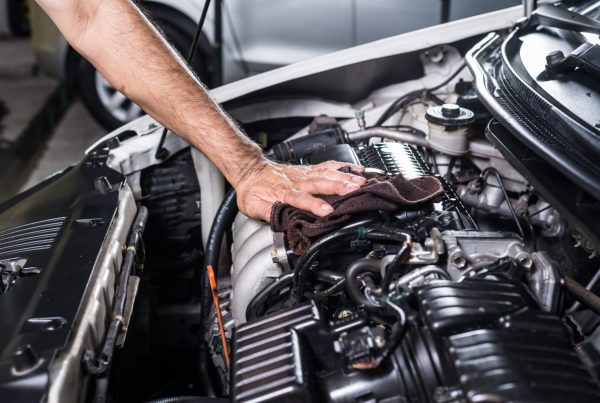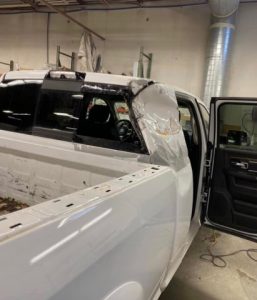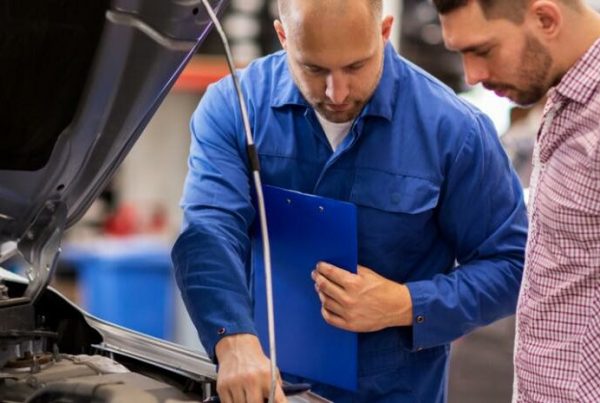One of the most misunderstood aspects of auto body repair involves your rights and your ability to choose where you want your car to be repaired. This problem is magnified because the minute you are in an accident, a lot of information gets thrown at you and some decisions need to be made. If the car isn’t drivable, it needs to be towed somewhere. Then a police report needs to be written and filed, schedules need to be adjusted, transportation needs to be arranged, and several calls to your insurance company need to happen. It can be quite overwhelming.
One of the biggest frustrations for auto body shops is the amount of misinformation a driver receives on where they should take their car to be repaired following an accident. Some of that misinformation even comes from the insurance companies themselves whether that’s your insurance company or worse, the insurance company of the party that hit you. You deserve to know your rights concerning your personal property.
The short answer to the question of having to take your car to the shop your insurance company recommends is: No. But before we go into why you have the freedom to choose whichever body shop for your car repair, let’s back it up a little bit.
What Insurance Companies Will Probably Tell You
Depending on the company, your insurance company might try to convince you that you need to use a shop that is in their network. However, unlike your health insurance, there are not in-network providers when it comes to collision repair. You are legally entitled to use any auto body shop of your choosing, and your insurance company must reimburse for the repairs. Some of the other common statements insurance companies may include:
• “The repair is going to take longer if you go somewhere else. Don’t you want your car back as soon as possible?”
Our response? Quicker repairs don’t always mean better. We’ll get to that below.
• “That’s not under warranty. We can’t offer your lifetime warranty on the repair if you go to that repair shop instead this one that we chose for you.”
Our response? Insurance companies don’t actually warranty repairs, only repair shops do. Some even repair shops offer a lifetime warranty.
• “Well, that shop is out of our network, so we can’t guarantee the length of that repair.”
Our response? While most shops are pretty good at estimating how long a repair will take, simply being a direct repair body shop does not mean that all other shops are slower to repair. Your repairs will take as long as it takes to get parts, repair the damage, paint the car, and reassemble it. Most common repairs can be performed in a week or less.
Your Rights
Insurance companies are going to try to convince to use one of their Direct-Repair Shops, known as DRP. These are often the repair shops insurance companies have a contractual agreement with. There are a lot of repair shops that are DRP, so that can’t be the deciding factor for where you choose to go. However, your insurance company is going to try to convince you that if you don’t choose one of their shops, that it won’t be covered and it isn’t under warranty. This is false. You have the right to decide where your car gets repaired. Period. End of story.
Repair Time Pressures
Insurance companies want you to get your car repaired and back to you as soon as possible. Customers want quick repairs, and insurance companies want to minimize the length of your rental (it’s less expensive, after all).
The problem here is that shops who are under the gun to keep to short repair times may, in some cases, cut corners. This could be detrimental to the value of your car at resale. Let alone, to the safety of you, your family or other drivers on the same road.
Choice of Repair Parts
The vehicles on today’s roads are equipped with advanced technologies that can only be repaired with the same level of parts they were made with. These are commonly known as ADAS or “Advanced Driver Assistance Systems.” When these newer car parts are repaired, you only want Original Equipment Manufacturer (OEM) parts, which are directly from the manufacturer that ensure the right fit and functionality of that part. This has been an on-going debate with some insurance companies for quite some time now, solely for the fact that OEM repair parts are much more expensive than aftermarket parts. Insurance companies may also recommend the use of salvage parts, which means they are from a junkyard. Be sure to check with your policy. Some insurance policies allow OEM parts in auto body repairs, depending on the circumstance and age of the vehicle.
Choice of Repair Facility
No matter what, you have the right to choose where your car gets repaired. However, you also want to verify the technicians at the repair shop are qualified to perform the repair. Almost every repair shop has its technicians certified through the I-CAR. However, there are some states where it’s not required for an auto repair technician to work on your car with a license. New Jersey and Pennsylvania are two of them. That means any technician in these states can do whatever they want to your vehicle and not be under any legal obligations. It comes down to the shop and the technician, and yes, sometimes these are direct repair shops.
You want your car to be repaired at an autobody shop that is not only OEM Certified, but somewhere that will help you get everything you deserve in your collision repair. You want to find a shop who will be a team player.
Why Choose Us
We at Rocco’s Collision Center have been serving New Jersey and Pennsylvania since 1957. We have 6 locations across the Greater Philadelphia area and New Jersey. At Rocco’s, our technicians have received extensive training from PPG and I-CAR and are up-to-date on the latest OEM Repair procedures. We will work with you and your insurance company to ensure a stress-free repair.
If you’d like to request an online estimate, click here to get started!
Feel free to give us a call at (888)-9-ROCCOS. Or, if you’d like to call any of our locations directly and to schedule an appointment, click here!
We look forward to hearing from you and showing you the Rocco difference of over 60 years!




